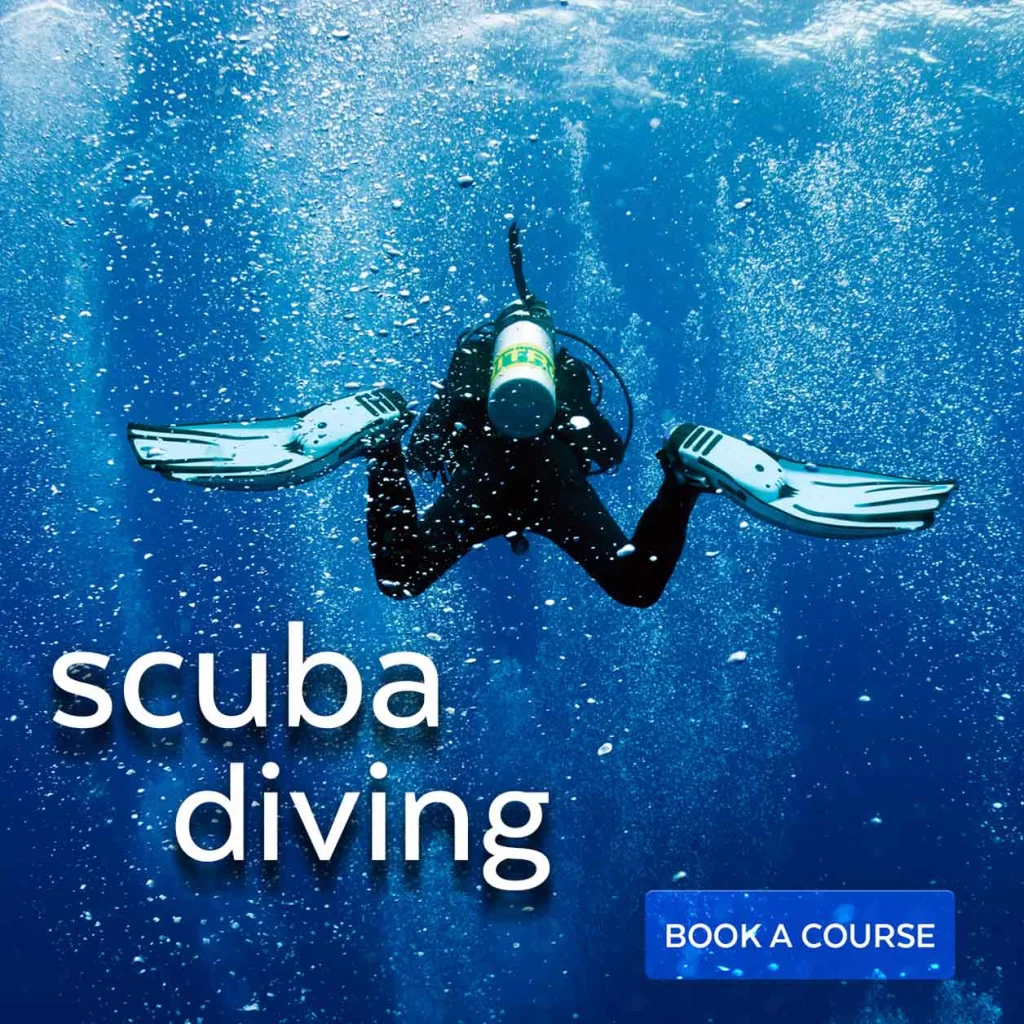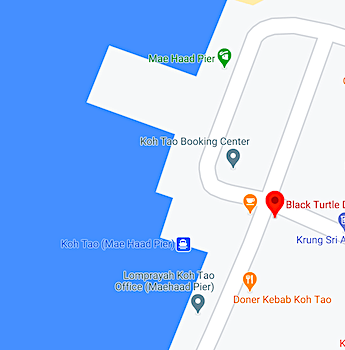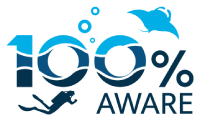Coral Disease Monitoring course in Thailand
Coral Disease & Compromised Health course on Koh Tao
Coral reefs are complex and diverse ecosystems that provide important benefits to humans and marine life, including coastal protection, fisheries, and tourism.
However, coral diseases are a major threat to the health of coral reefs around the world and coral disease outbreaks can cause widespread mortality of coral colonies, leading to the decline of entire coral reef ecosystems. Coral Diseases are a major threat to the health of coral reefs.
In some cases, coral disease outbreaks have led to the loss of more than 90% of the coral cover in some affected areas.
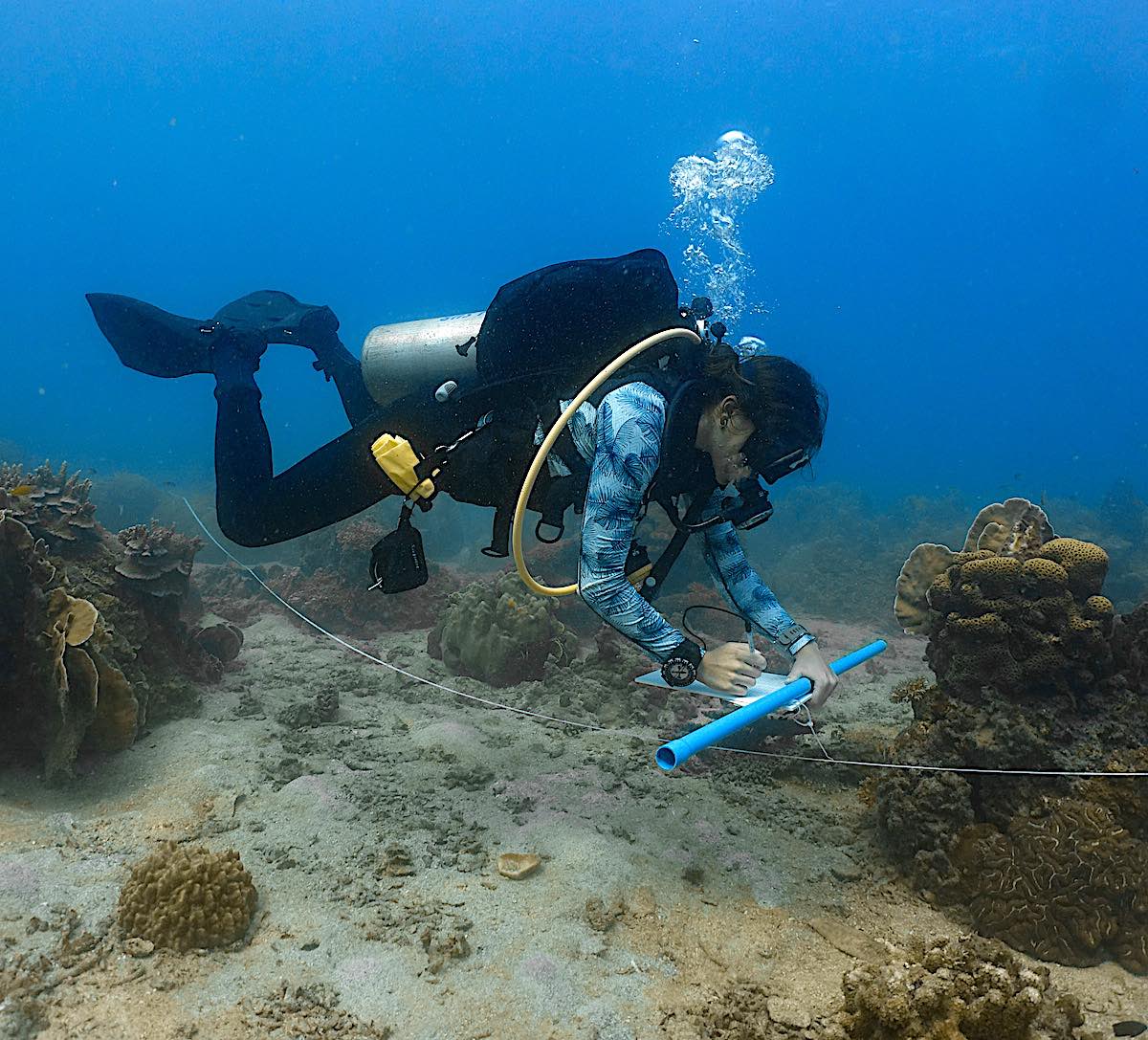
What causes Coral Reef Diseases in Thailand?
Coral diseases can be caused by a variety of factors, including bacteria, viruses, fungi, and other pathogens, and can be exacerbated by environmental stressors such as pollution and climate change, which weaken corals and makes them more susceptible to infection.
- Bacteria: Some coral diseases are caused by bacteria that infect the coral tissue.
- Viruses: Coral viruses can also cause disease, often by weakening the coral’s defenses and making it more susceptible to other stressors.
- Fungal infections: Fungi can also infect coral, causing tissue death and bleaching.
- Parasites: Coral parasites can also cause disease, often by feeding on the coral’s tissue or eggs.
Coral reef diseases can be difficult to detect and diagnose, and they can often spread rapidly. This makes it important for scuba divers to be aware of the signs of coral disease and to report any suspected cases to the appropriate authorities, without touching any of the diseased coral colonies.
Indicators of Coral Diseases in Thailand
- Whitening: Corals that are infected with disease may turn white or bleached, because the coral’s symbiotic algae, which provide it with food and oxygen, are expelled.
- Bleaching: Corals that are bleached may also become covered in white spots or patches and these spots are areas where the coral tissue has died.
- Wounds: Corals that are infected with disease may develop wounds or lesions, and wounds can be caused by physical damage, such as from boat anchors or divers’ fins, or they can be caused by the disease itself.
- Death: Corals that are severely infected with disease may eventually die.
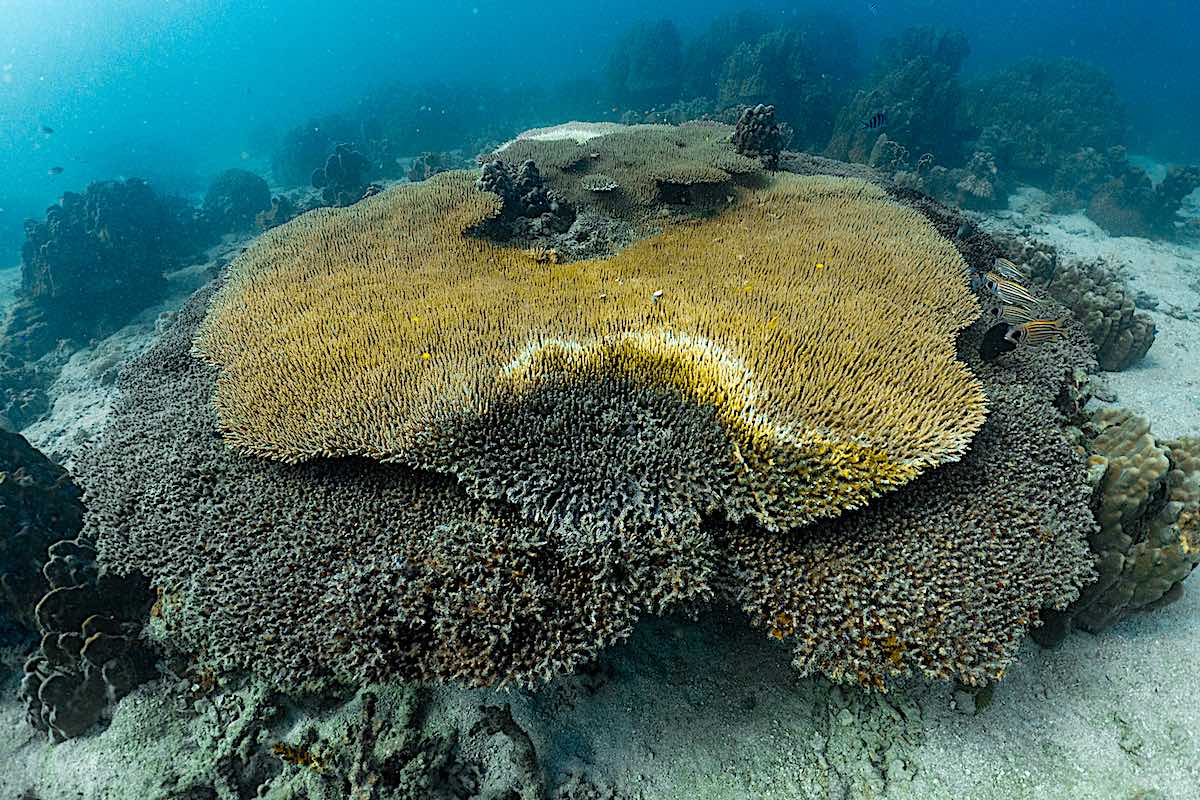
Learn about Coral Disease & Compromised Health in Thailand
Our Coral Disease & Compromised Health Monitoring course educates divers on how to monitor coral reef diseases, and they can do this in different ways by:
- Reporting any suspected cases of coral disease to the appropriate authorities, such as our conservation department, or a coral reef research organization.
- Take photographs of any suspected cases of coral disease, which can help scientists to identify the disease and track its spread.
- Avoid contact with diseased coral, which can help to prevent the spread of the disease.
- Disinfecting diving equipment after diving in areas where coral disease has been reported, which can help to prevent the spread of the disease to other reefs.
By taking our Coral Disease & Compromised Health Monitoring course, divers can help to protect coral reefs from the threat of coral reef diseases.
Monitoring Coral Diseases in Thailand
Monitoring coral diseases is important to understand the health of coral reefs and to learn to identify the many potential threats they face.
Efforts to monitor and mitigate coral diseases are critical for the long-term health and resilience of coral reefs.
This includes efforts to reduce pollution and other environmental stressors, implementing measures to control the spread of pathogens and promote the recovery of coral reefs through restoration efforts.
There are several methods for monitoring coral diseases, including visual surveys, tissue sampling, and genetic analysis.
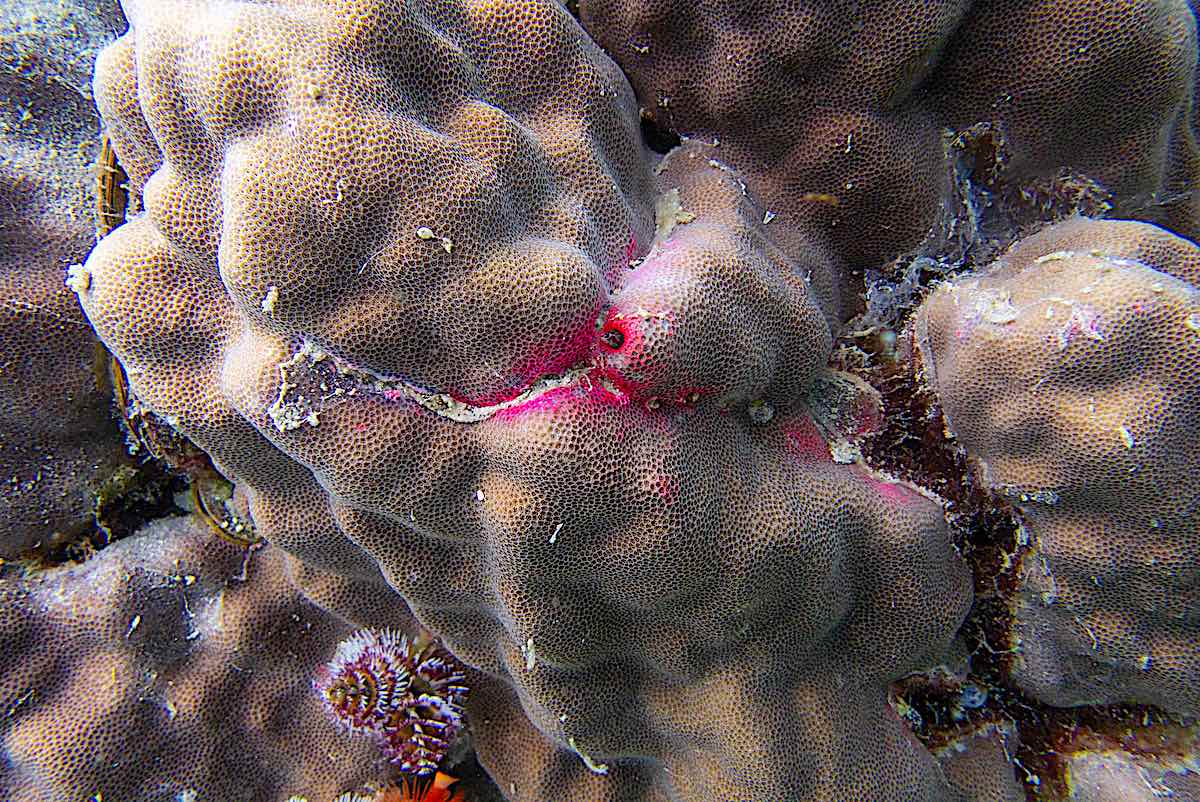
Coral Disease Surveys in Thailand
- Visual surveys: This is the simplest and most common method for monitoring coral diseases and scuba divers or underwater cameras are used to visually inspect coral reefs for signs of disease, such as bleaching, white spots, or lesions.
- Scuba diver surveys: This method is similar to visual surveys, but it involves divers collecting more detailed information about the affected corals, such as the size and location of the lesions, the type of coral, and the environmental conditions at the site.
- Remote sensing: This method uses satellites or aircraft to collect images of coral reefs and these images can be used to detect changes in coral cover, which can be an indicator of disease.
- Molecular analysis: Involves collection of samples of diseased coral and analyzing them for the presence of disease-causing bacteria, viruses, or fungi.
- Histological analysis: Collecting samples of diseased coral and examining them under a microscope to look for signs of tissue damage or infection.
Coral Disease & Monitoring Techniques
The best method for monitoring coral diseases depends on the resources available and the specific goals of the monitoring program.
Visual surveys are often the most practical method for large-scale monitoring, while scuba diver surveys and remote sensing can provide more detailed information about specific reefs.
Molecular analysis and histological analysis can be used to identify the specific causes of coral diseases, but they are more expensive and time-consuming.
By using a combination of methods, scientists can get a more complete picture of the status of coral diseases and track their spread over time and this information can be used to develop management plans to protect coral reefs from this major threat.
We will be focusing on visual surveys during the Coral Disease & Compromised Coral Health Monitoring course.
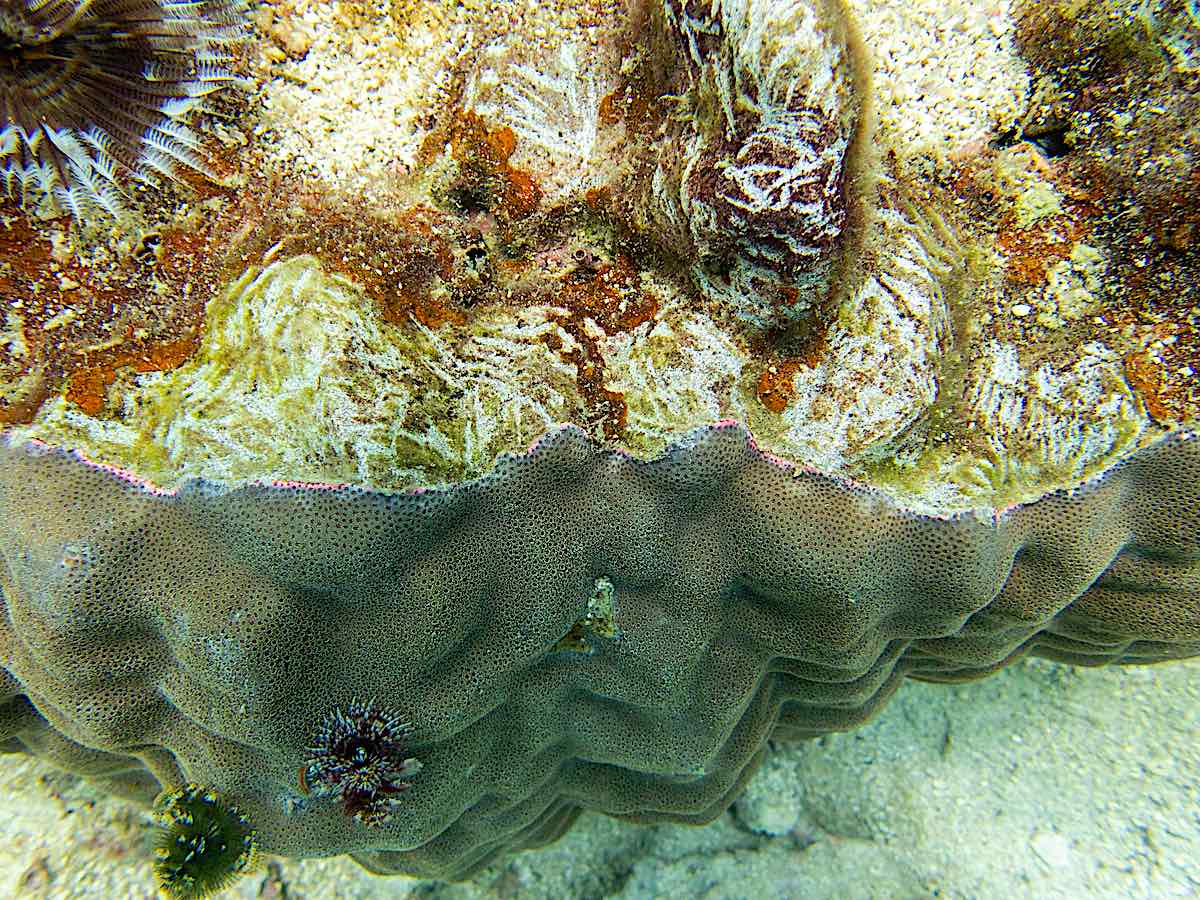
Understanding the Health of Coral Reefs
Our Coral Disease & Compromised Coral Health Monitoring course is one of the mandatory Specialties required to gain the prestigious certification Advanced Ecological Monitoring Program Diver.
Specifically for students who are certified in the Ecological Monitoring Program, and Coral Taxonomy and Identification and are comfortable with all practical and theoretical aspects of these courses.
When performed to a high level of proficiency, a coral health assessment can be incorporated into the surveys. This course will teach you how to identify all states of coral health, and contribute to coral disease and overgrowth monitoring, and research.
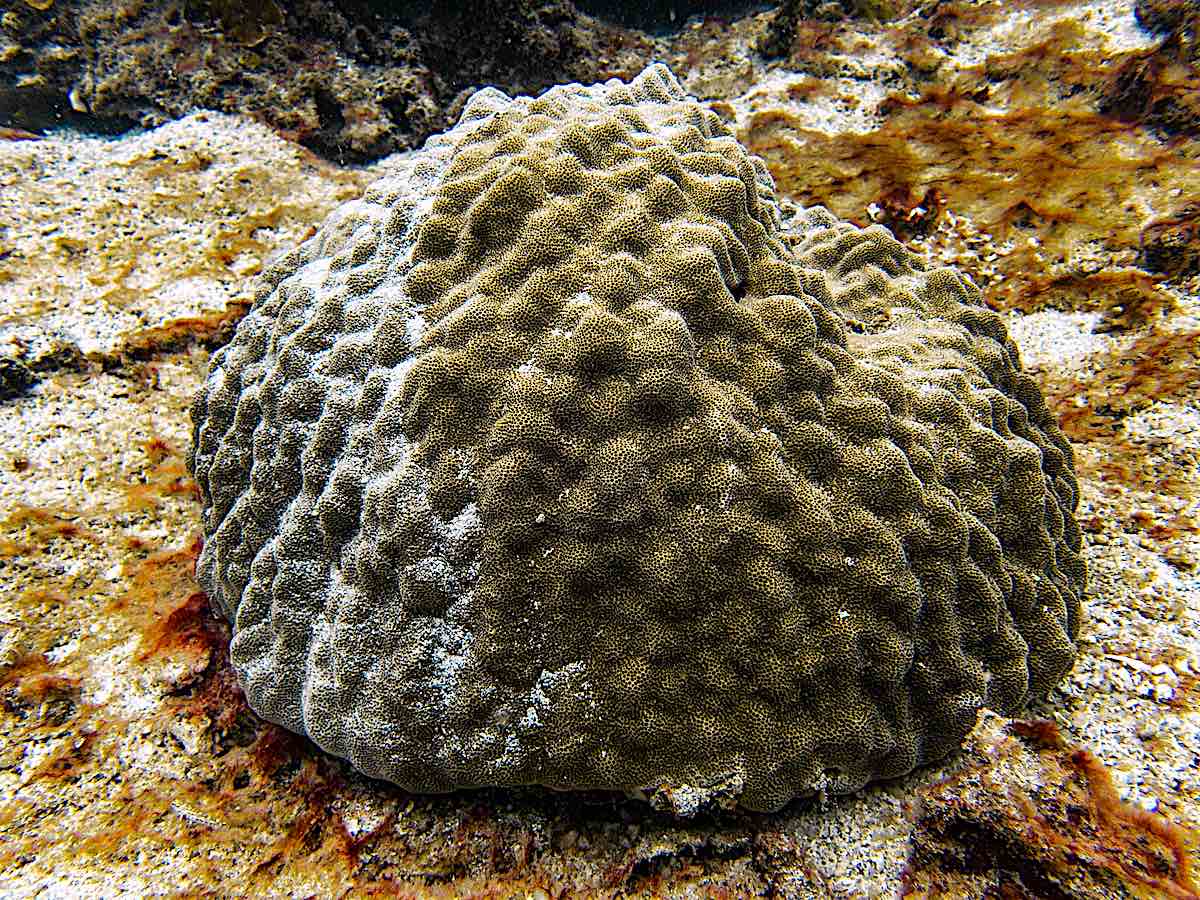
BOOK NOW 6,000 baht
Improve Scientific Knowledge of Coral Diseases and Health
The Coral Disease & Compromised Coral Health Monitoring course is perfect for students wishing to increase their monitoring skills, research skills and knowledge. Students can work towards being able to conduct the Advanced Ecological Monitoring program.
What Divers Learn on this Course
- How to perform the reef research methods of the Coral Disease Survey and students are able to collect data to a standard that will allow them to contribute to local and global databases.
- Learn how to identify additional threats to coral reef health, explain why they happen and what they represent.
- Learn specifically about symptoms affecting the corals of the Indo-Pacific region, enabling their identification and monitoring.
To enroll on the Coral Disease & Compromised Health course course an individual must first have completed the Ecological Monitoring Program course AND the Coral Taxonomy & Identification course, one of the Conservation Diver Advanced Specialty courses.
The Ecological Monitoring Program is at the center of the Conservation Diver training, education and research program, and as such this course is a prerequisite for many of the other courses offered by Conservation Diver.
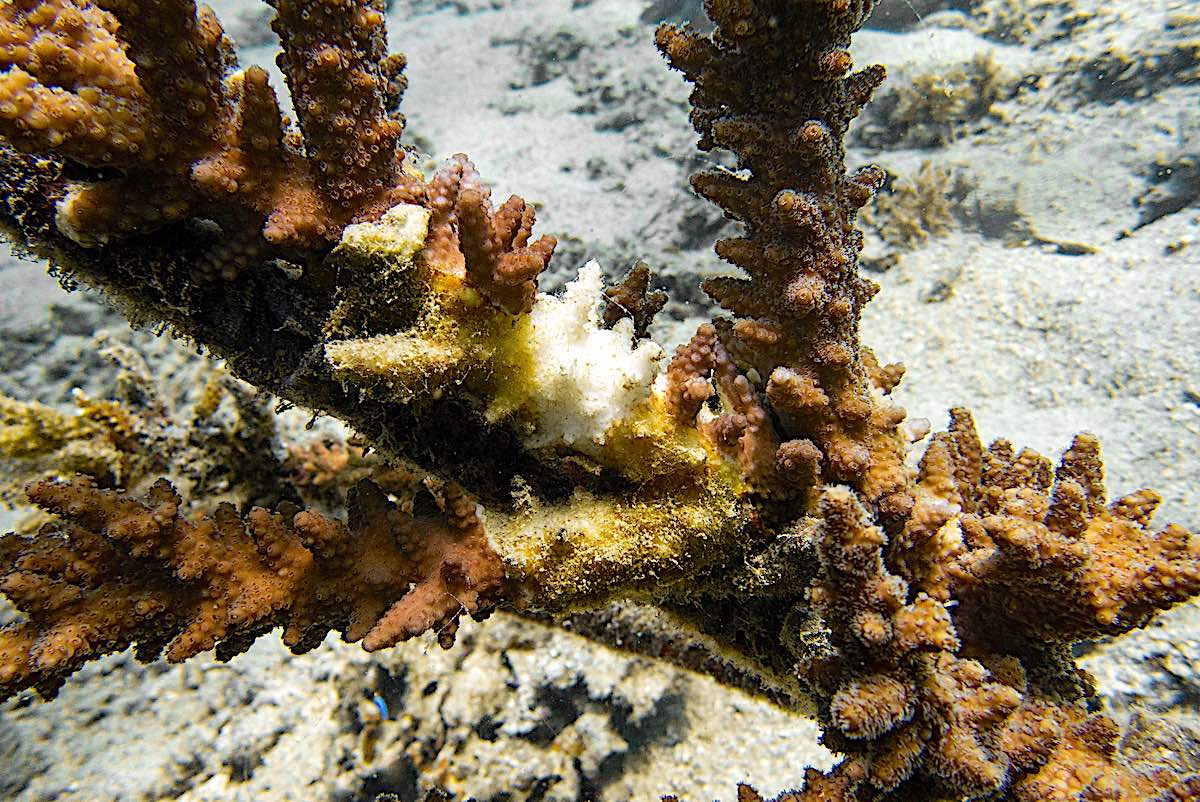
How to Enroll on Coral Diseases & Monitoring course
The EMP course provides scuba divers with hands on experience that can be applied to future academic or professional pursuits.
Completing this course is a rewarding and enriching experience for everyone, regardless of whether you are pursuing a career in this field or simply have a personal interest in marine life and the oceans.
Those who master the skills & knowledge on the EMP course are encouraged to then go on to achieve the Advanced Ecological Program certification. Become a Coral Reef Researcher & Enhance your Professional Development.
The Advanced Ecological Monitoring Program certification is awarded to students who show exceptional research and monitoring skills.
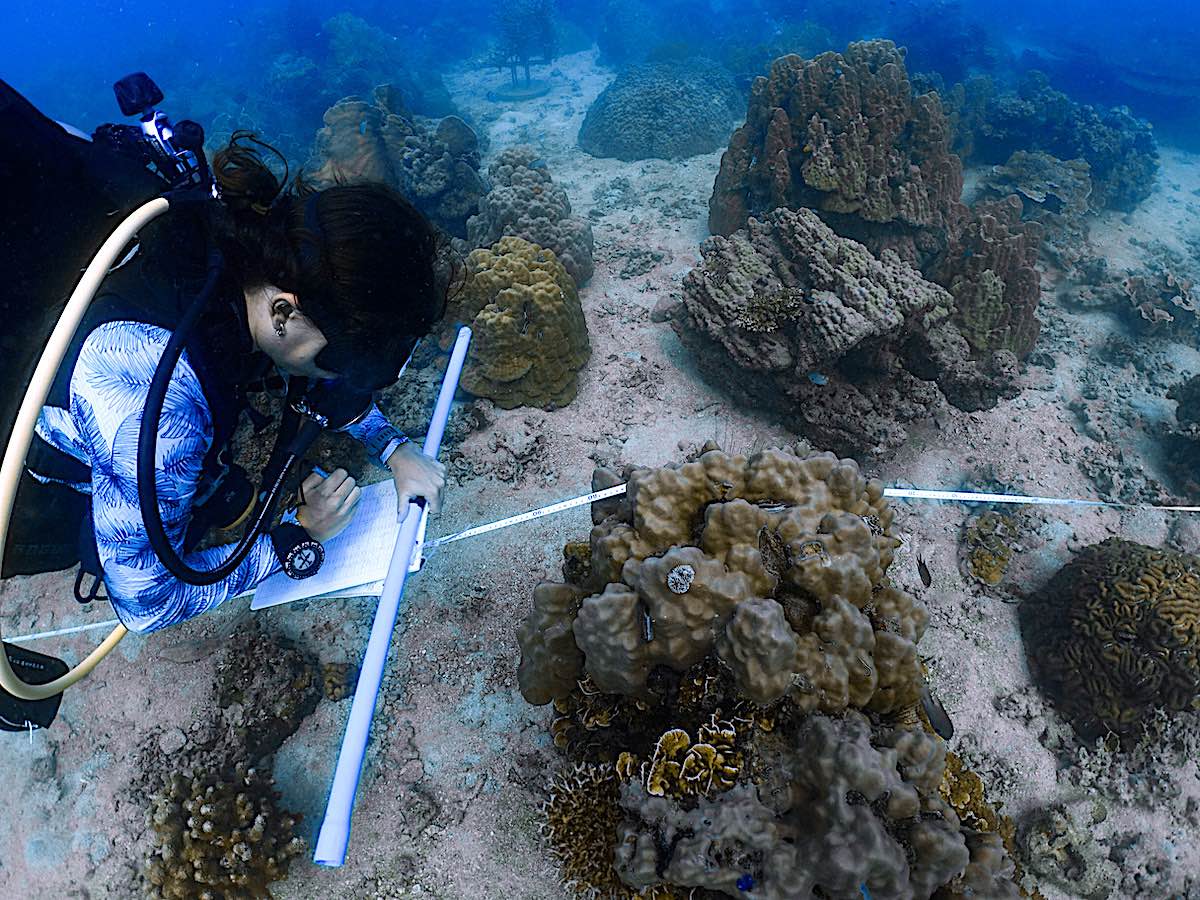
Coral Diseases & Compromised Health Requirements
An individual must already be an EMP diver and have completed the Conservation Diver Specialty training courses in Coral Taxonomy & Identification and this course, Coral Disease & Compromised Health Monitoring.
You must also complete 3 additional Conservation Diver monitoring specialty courses.
Reef researchers and students all around the world use similar programs to collect data, meaning the Advanced Ecological Monitoring Program will help with your professional and academic studies too.
By increasing awareness and involvement, we can decrease our impacts on coral reefs and provide solutions to protecting and restoring the reefs around the globe and help to make a real difference.
Protecting the Coral Reefs of Koh Tao, Thailand
Most successful restoration projects have been achieved by small groups and local communities, rather than governments or policy makers, and Black Turtle Dive is continuing this tradition, doing as much as we can to protect the local environment on Koh Tao, Thailand.
After completing this course, students will know how to perform the reef research methods of the Ecological Monitoring Program and can continue to help with data collection.
You will gain knowledge about coral reefs and their inhabitants. Students will learn how to identify indicator fish, invertebrate species and substrate types and gain experience working with equipment underwater. You will also practice buoyancy and navigation skills.
Once you have successfully completed the training you can assist on our monthly EMP’s, and participate in EMP courses in other areas of the world with our network of Conservation Diver Centers.
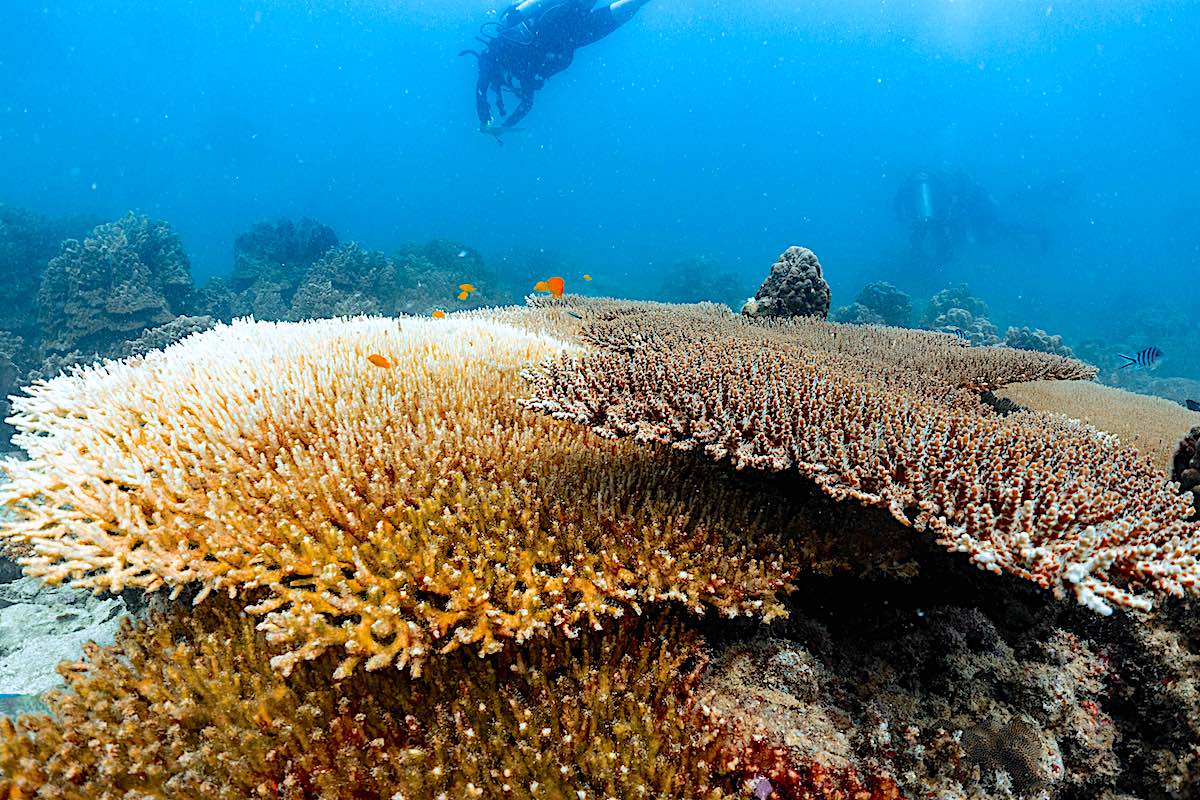
Coral Disease & Compromised Health Course Information
- 1 day program
- 2 training dives
- Conservation Diver certification
- Rental of all scuba equipment
- FREE use of Dive Computer
- Log book
- Black Turtle Dive Customer (and environmental) promise
Coral Disease & Compromised Health Course Enrollment
- Be 12 years of age or older
- Be certified as an Advanced diver under a leading diving organization (PADI, SSI, RAID, etc.) or an Open Water diver who has satisfactorily completed a buoyancy assessment with a Conservation Diver Instructor or completed a buoyancy specialty course with a leading certification organization.
- All students must successfully demonstrate proficiency in buoyancy skills. Including but not limited to:
- Basic Hovering
- Diving with fins above head level
- Non-disturbance of substrate (silt, sand)
- Fin Pivot
- Ability to be stationary without anchoring
- Have completed the Ecological Monitoring Program course and be certified as a Conservation Diver EMP Diver.
- Have completed the Coral Taxonomy & Identification course and be certified as a Conservation Diver Coral Taxonomy & Identification diver
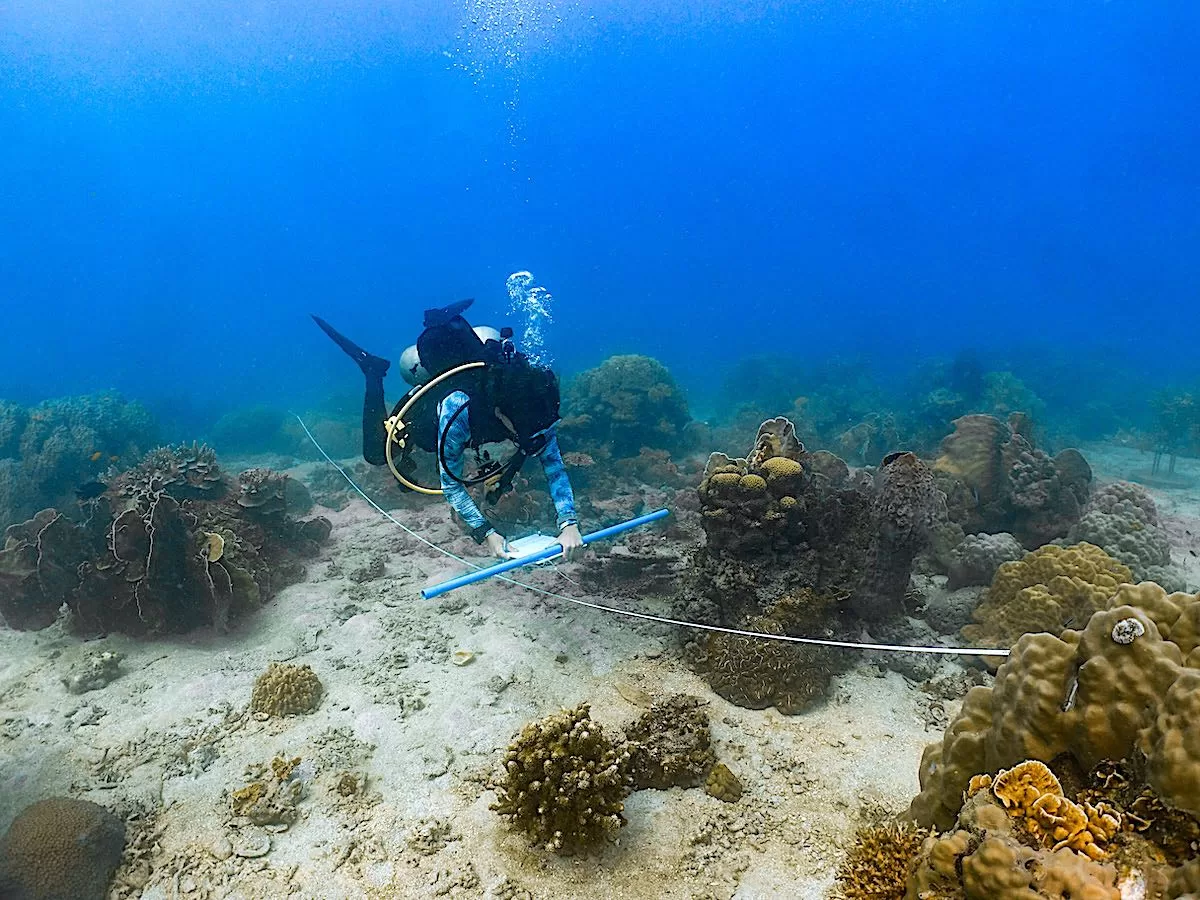
What is in the Coral Disease & Compromised Health Course
- Read Chapter 8 Surveying for Coral Diseases from the EMP Manual or read the Coral Disease & Monitoring manual
- Attend the Instructor led presentation on Coral Disease Identification and Monitoring
- Complete the Instructor led Coral Diseases Quiz
- Complete the Coral Diseases final exam and score at least 80%
- Attend the practical briefing prior to Coral Disease Survey dive
- Successfully perform at least one Coral Disease and Comprised Health Monitoring Survey Identifying and describing compromised health states of corals using the Coral Health Decision tree.
- Complete data entry, in the form of hard copy data sheets or the online database, as required
What you learn in the Coral Disease & Compromised Health Course
- Understand how predation, competition, and parasitism play a role in the structure and population dynamics of the coral reefs
- Be proficient in various survey techniques used by reef managers to monitor the health of coral reef ecosystems
- Be able to identify various common coral disease of the region
- Be familiar with, and able to identify common causes of coral mortality or compromised health states
- Underwater survey methods with transect lines
- Data input and uses
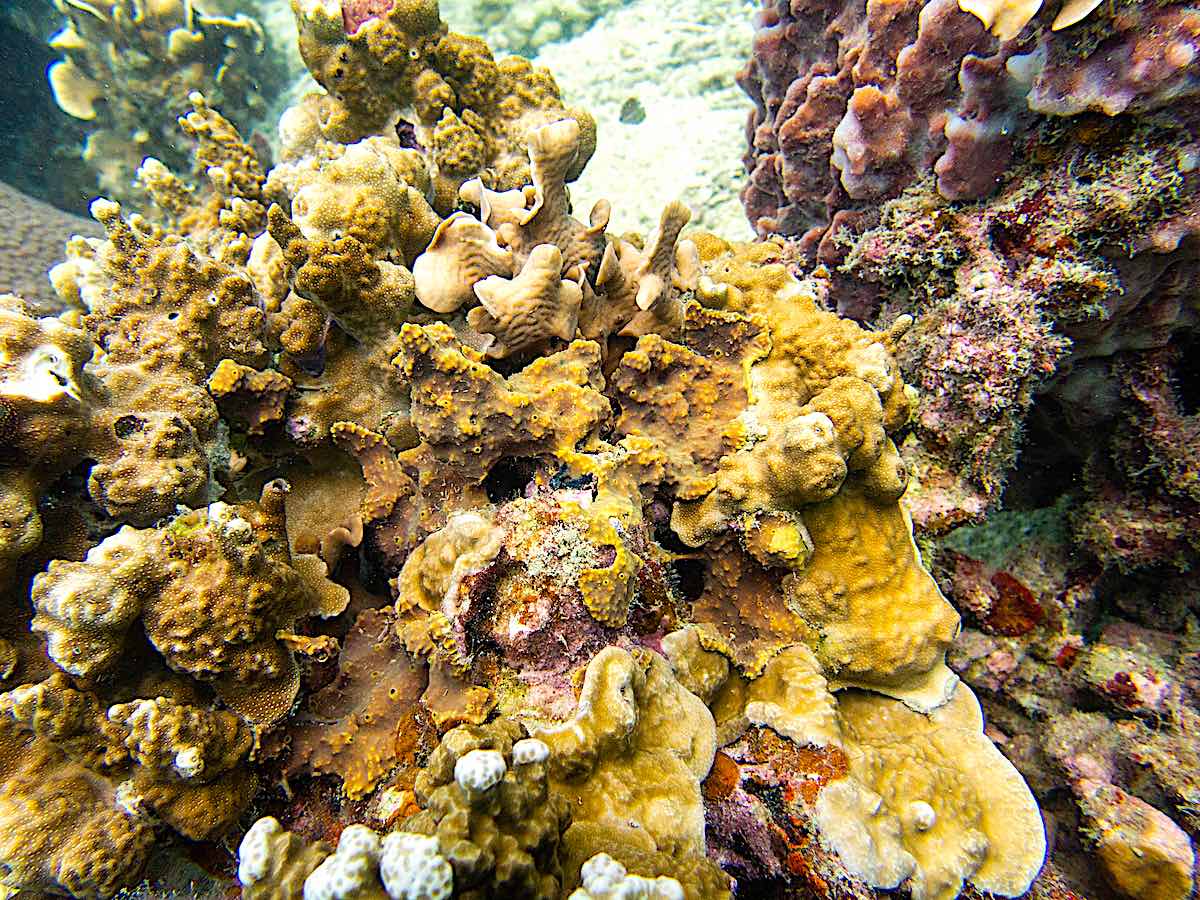
Coral Diseases & Compromised Health Specialty course
The knowledge development section of the Coral Diseases & Compromised Health course is divided between independent study and a classroom knowledge development presentation and pre dive briefings, and post dive debriefings led by one of our Conservation Diver Instructors.
The Coral Diseases & Compromised Health course manual section covers eight sections and the following subjects:
Course Standards & Requirements
- Prerequisites
- Standards
- Requirements
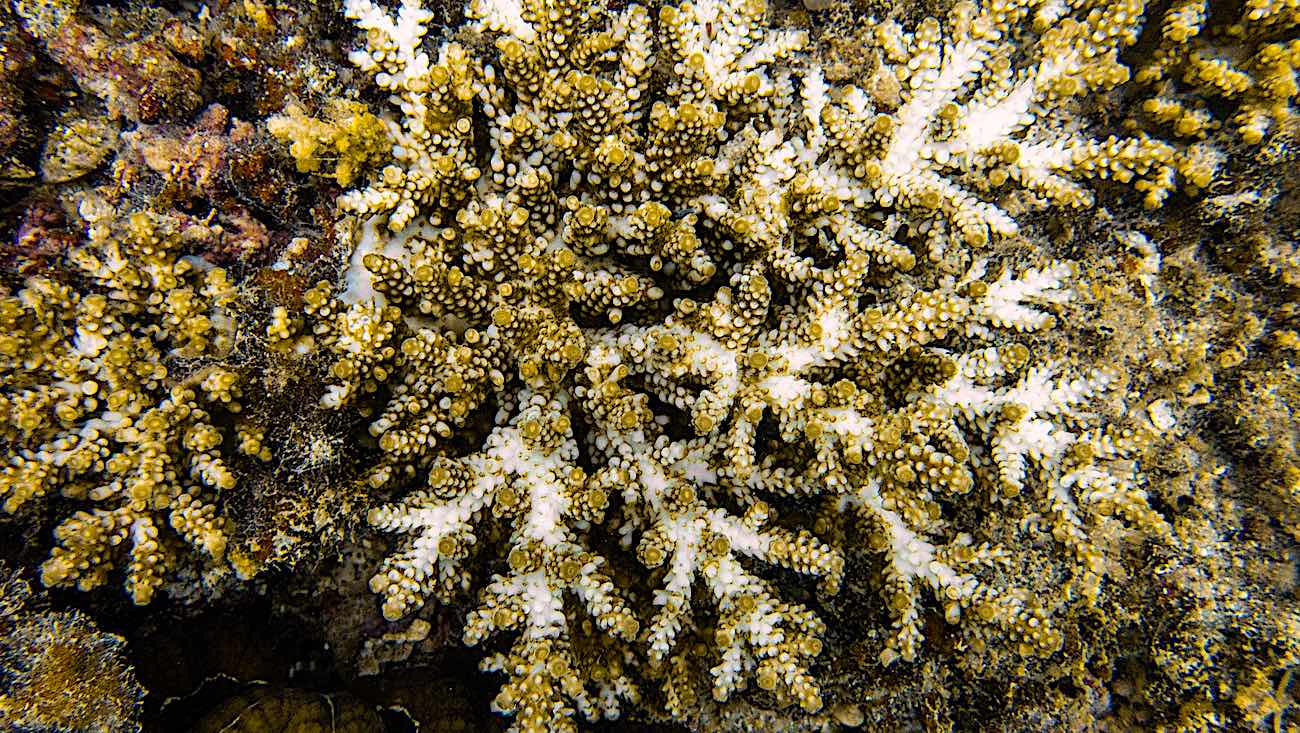
Introduction to Coral Health, Diseases and Surveys
- Introduction to Coral Disease
- How Diseases Become Problematic
- Coral Disease Terminology basics
Predation
- Crown of Thorns Starfish
- Coralliophila Snail
- Wentletrap Snail
- Drupella Snail
- Damsel Fish
- Butterfly fish
- Trigger fish and Puffer fish
- Parrotfish
Competition
- Macroalgae & Nutrient Indicator Algae
- Cyanobacteria & Filamentous Mats
- Tunicate & Ascidian Overgrowth
- Sponge Overgrowth
- Competition between Coral Colonies
Other Symptoms for Coral Diseases
- Unexplained Bleaching Pigmentation Response
- Growth Anomalies
- Sedimentation
- Trematodiasis
- Physical Disturbance
- Trash & Rubbish (Anthropogenic Impacts)
Coral Diseases of the Indo-Pacific Region
- White Syndrome Disease
- Black Band Disease
- Brown Band Disease
- Skeletal Eroding Band Disease
- Pacific Yellow Band Disease
- Atramentous Necrosis Disease
Coral Diseases of the Wider Caribbean Region
- Aspergillosis
- Black Band Disease
- Caribbean Ciliate Infection
- Caribbean Yellow Band Disease & Yellow Blotch Disease
- Dark Spots Disease
- White Band Disease Type I and Type II
- White Patch Disease
- White Plague Disease
- Stony Coral Tissue Loss Disease
How to Collect Data on Coral Diseases
- Belt Transect
- Survey Slates
- Quadrant survey
- Tracking Coral Colonies
- Data Use
Coding Coral Diseases Accurately
- Addressing the difficulties of having multiple stressors affecting a single coral colony
We recommend that you complete all independent eLearning before you start the course.
However, if you are signing up late, or have been unable to complete the e-learning prior to arrival, we will assure you complete prerequisite study in a manner that supports the in-water work.
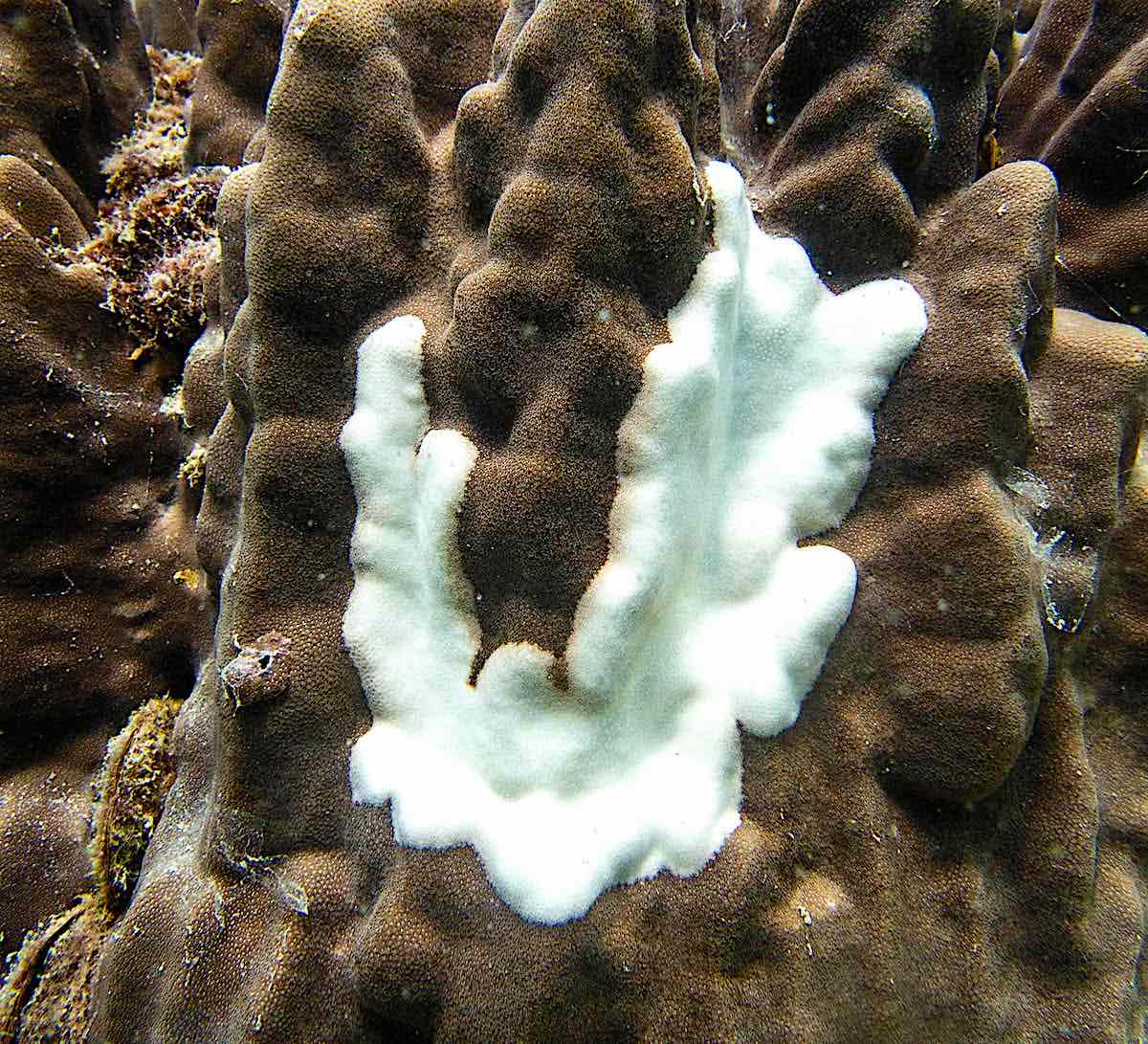
Knowledge Development Presentation & Classroom
- EMP Parameters
- Why do corals die?
- Applications to Conservation
- Disease research
- Causes & Types of Disease
- Spread of disease
- Triggers of Disease
- Describing Coral Diseases
- Identifying diseases in the field
- Transect line surveys
- Recording data
- Identifying coral diseases
- Fish Predation
- Invertebrate Predation
- Black Band disease
- Skeletal Eroding disease
- Brown Band disease
- Atramentous Necrosis
- White Band disease
- White Plague
- Ulcerative White Spots
- Coral Bleaching
- Dark Spot disease
- Yellow Band disease
- Growth Anomalies
- Pigmentation Anomalies
- Trematodiasis
- Compromised Health: Hard Coral
- Compromised Health: Octocoral
- Competition – Overgrowth
- Coralline White Band Syndrome
- Other Reef Organisms
Water Skills Development & In-water Workshops
- Buoyancy assessment
- Successfully perform at least one Coral Disease and Comprised Health Monitoring Survey
- Complete data entry, in the form of hard copy data sheets or the online database, as required
Completing the Coral Diseases Health course
- Complete knowledge development modules from manual
- Attend the Instructor led Coral Diseases & Compromised Health course knowledge development presentation
- Complete ID quizzes during Instructor led Coral Diseases & Compromised Health course knowledge development presentation
- Successfully complete the Coral Diseases & Compromised Health course final exam
- Complete at least 1 Coral Disease and Comprised Health Monitoring Survey
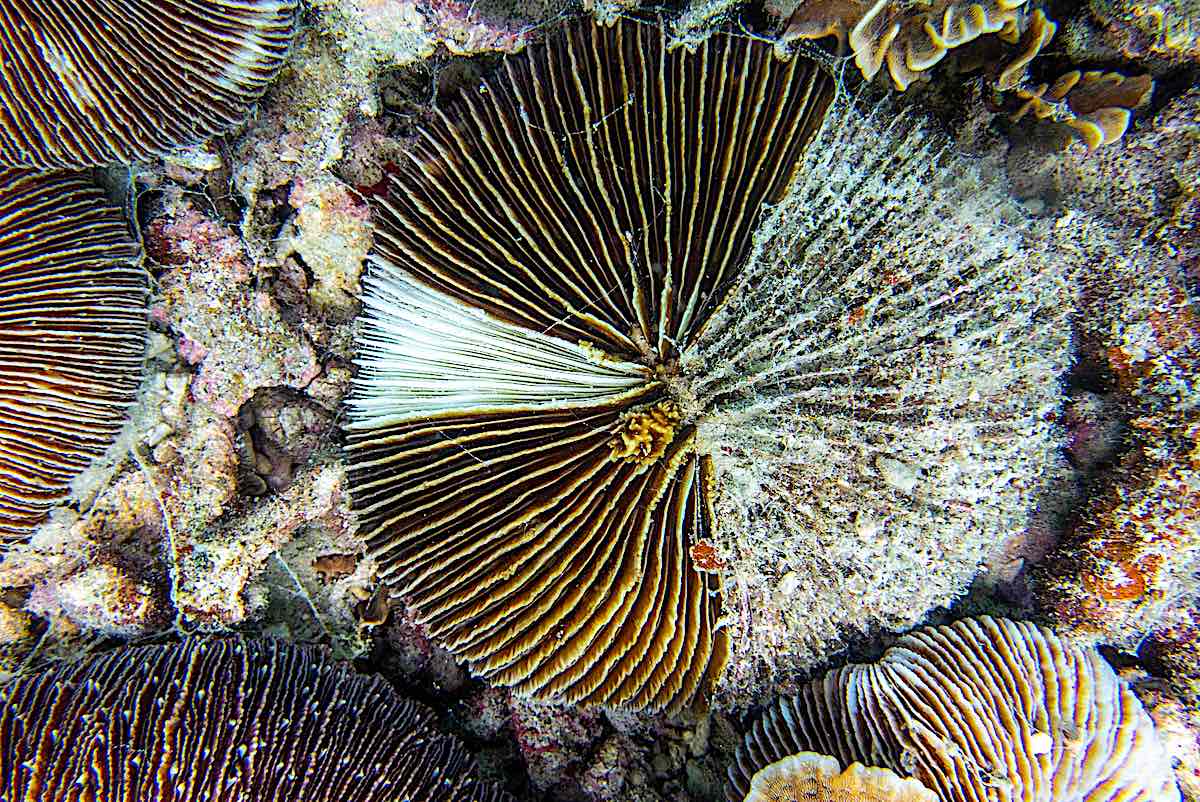
Coral Diseases & Compromised Health Course Cost
BOOK NOW 6,000 baht
Black Turtle Dive takes its customer promise very seriously and we wish to pass on our passion for the ocean to our customers, and offer the highest quality in safety, training and service.
The marine conservation program at Black Turtle Dive was launched in 2022, having evolved out of Eco Koh Tao, one of the longest running environmental organisations on the island.
Eco Koh Tao was founded by Nathan Cook, a master of Marine Science from Southern Cross University, Australia and Matt Bolton, a PADI Course Director who first brought Reef Check to the island in 2007 and founded Black Turtle Dive.
Eco Koh Tao planned and developed Junkyard Reef, Koh Tao’s first and arguably most successful artificial dive sites.
Junkyard Reef Artificial Dive Site
This work started in 2006 and continues to this day and Junkyard Reef hosts thousands of Open Water training dives every year, taking pressure off existing natural dive sites around Koh Tao.
Eco Koh Tao has also worked hard over the years monitoring coral reef health and being involved in multiple restoration projects. This work included being an integral part of the Save Koh Tao organization that spearheaded Buoyancy World, an island wide initiative to develop a second artificial reef in 2009.
Black Turtle Conservation symbolises the unification of Koh Tao’s two original ocean researchers, Nathan and Chad Scott. Chad founded Conservation Diver on Koh Tao in 2014, following 6 years of development work at his NHRCP program.
Conservation Diver is now a world leader in marine conservation education and has certified thousands of ocean enthusiasts over the past decade.
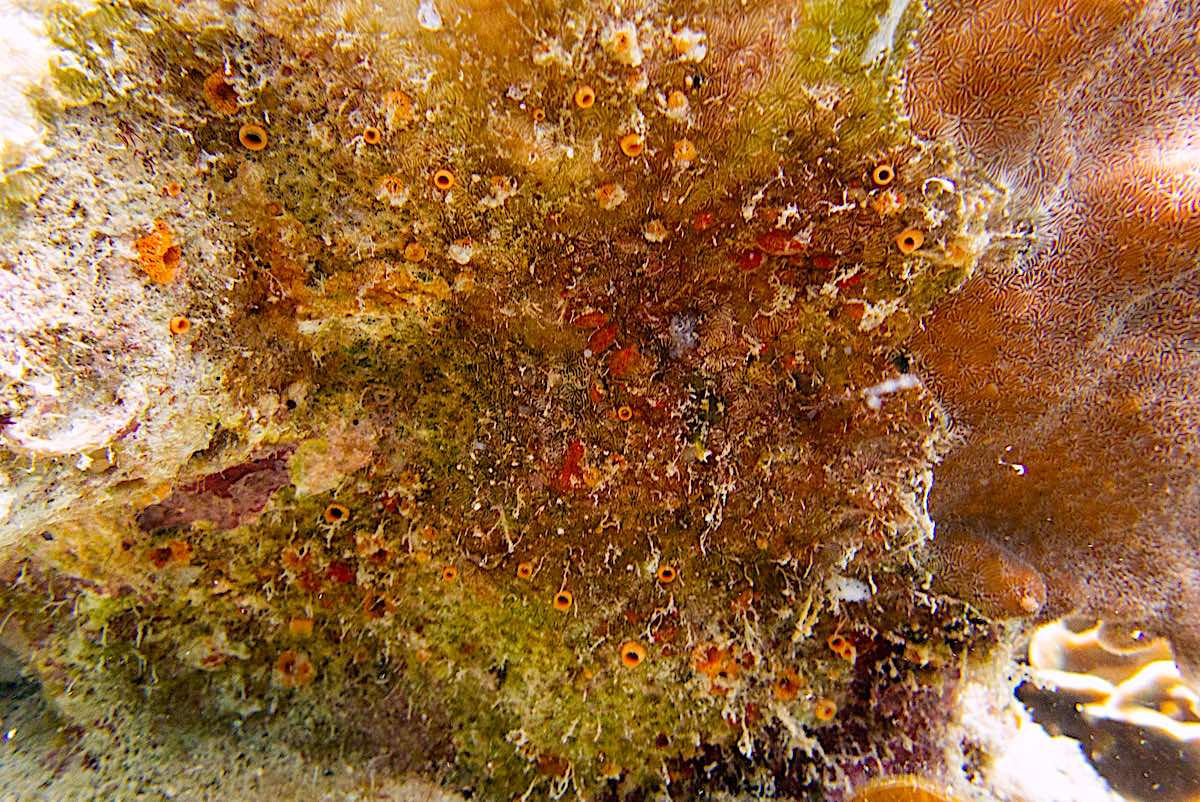
Black Turtle Conservation on Koh Tao, Thailand
Eco Koh Tao and NHRCP worked towards mutual goals for many years, but it is with this program at Black Turtle Dive that finally their deep local knowledge and global conservation vision combines to form what we believe is the best-in-class Reef Ecology And Conservation Training program (REACT).
The Conservation Diver global network extends across 11 locations, with 50+ instructors, teaching over 35 different marine science courses, bound together in the mission to train the next generation of marine conservationists.
Conservation Diver Global Network
Black Turtle Conservation are proud to be part of this shared vision. By working together in this way, we are able to benefit from data collaboration and the vast knowledge shared between a large group of experts in varying fields.
No other network in the world exists that connects conservation programs in such a way, which gives our students the benefit of being part of a movement of research and conservation much bigger than one single program of work.
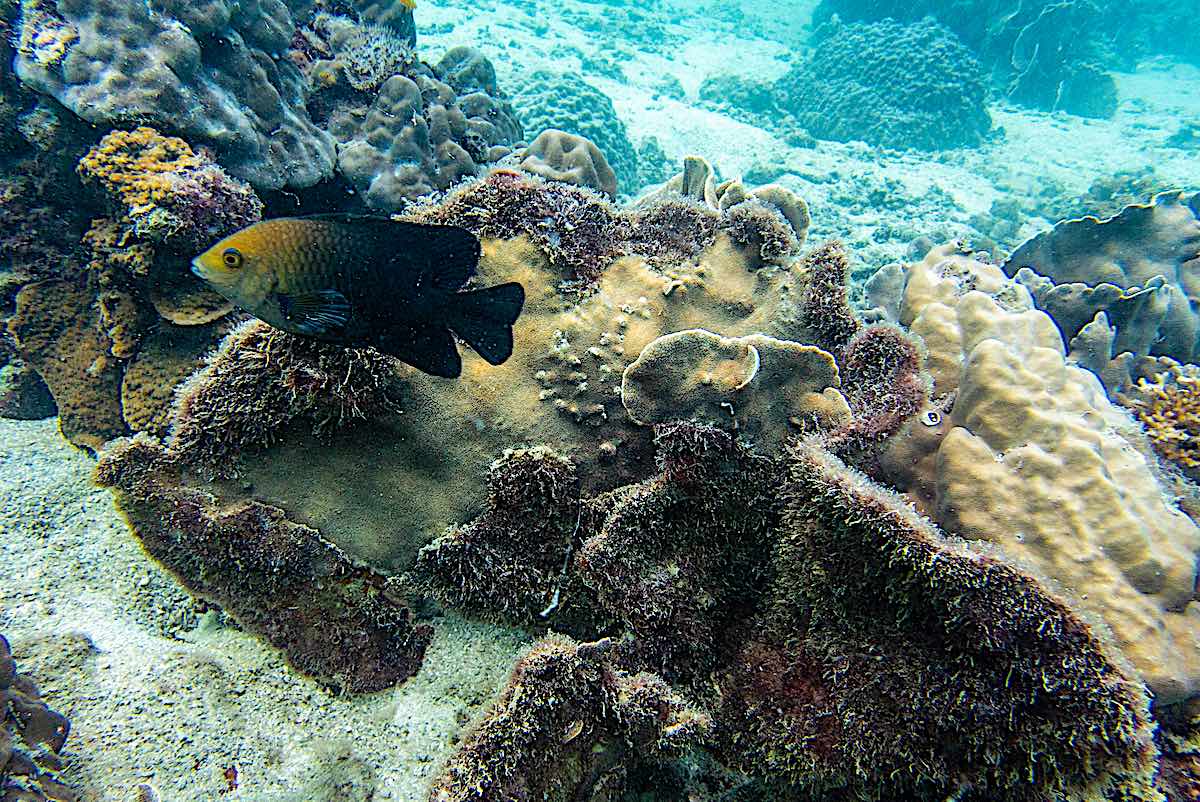
Coral Diseases & Compromised Health Course Schedule
The Coral Diseases & Compromised Health Monitoring course on Koh Tao is scheduled over 1 day.
Day 1
- Orientation
- Coral Diseases & Compromised Health knowledge development presentation
- Coral Diseases & Compromised Health course ID Quizzes (during presentation)
- LUNCH
- Buoyancy check
- Coral Disease and Comprised Health Monitoring Survey Dive
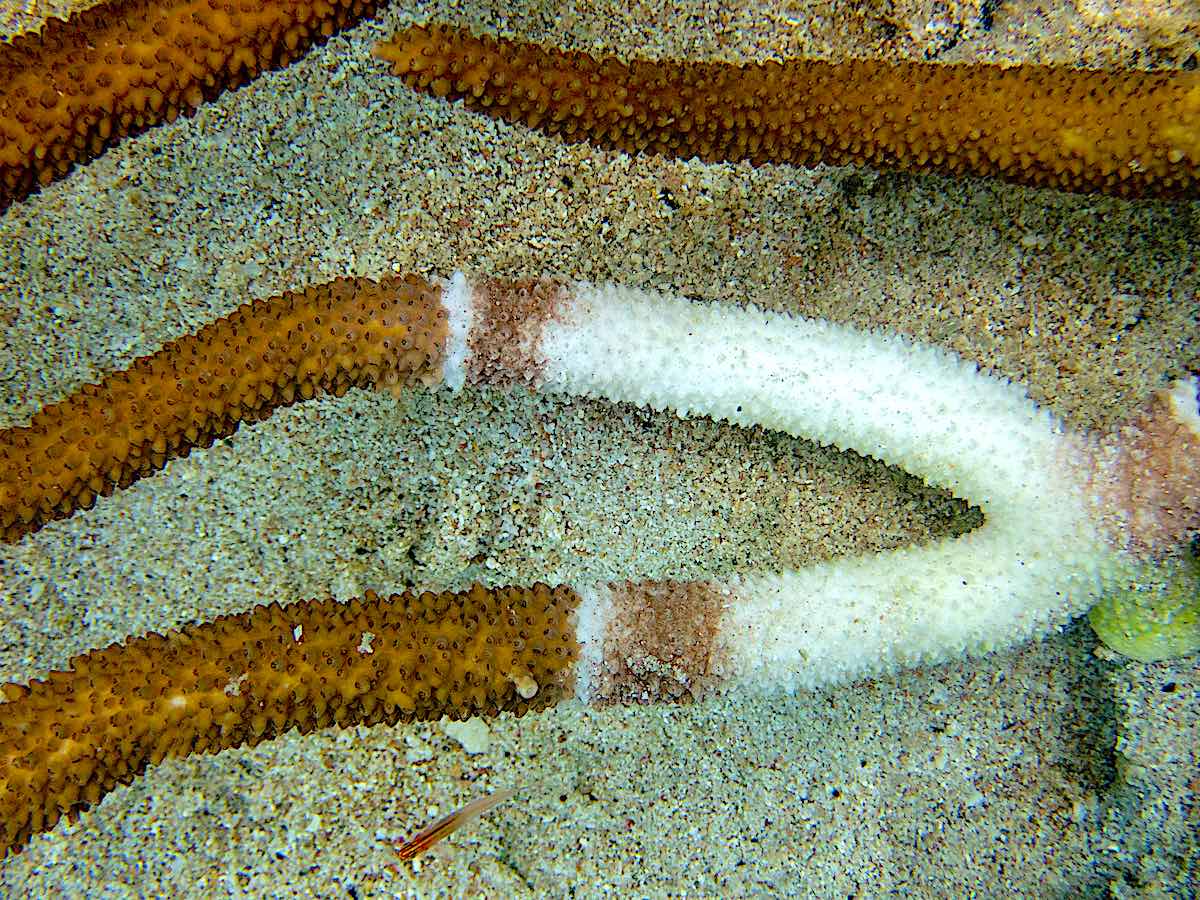
Coral Diseases & Health Monitoring course in Thailand
As soon as you sign up, we will send your Coral Diseases & Compromised Health course e-learning manual.
Once you have redeemed your access code you can start working your way through the e-learning and we recommend you complete the e-learning prior to the start of the course.
You will start the Coral Diseases & Compromised Health course with an Orientation.
Coral Diseases eLearning
This includes completing all required paperwork; Release of Liability/Assumption of Risk/ Non-agency Disclosure & Acknowledgment Form, Student survey, Student Responsibilities agreement, Scientific Diving Acknowledgment Agreement, Standard Safe Diving Practices Statement of Understanding and Medical Statement (RSTC Medical form)
As you can see from the schedule above the Coral Diseases & Compromised Health course manual comprises of 8 modules.
The knowledge development requirement is to read Chapter 8 ‘Surveying for Coral Diseases’ of the Ecological Monitoring Program (EMP) manual.
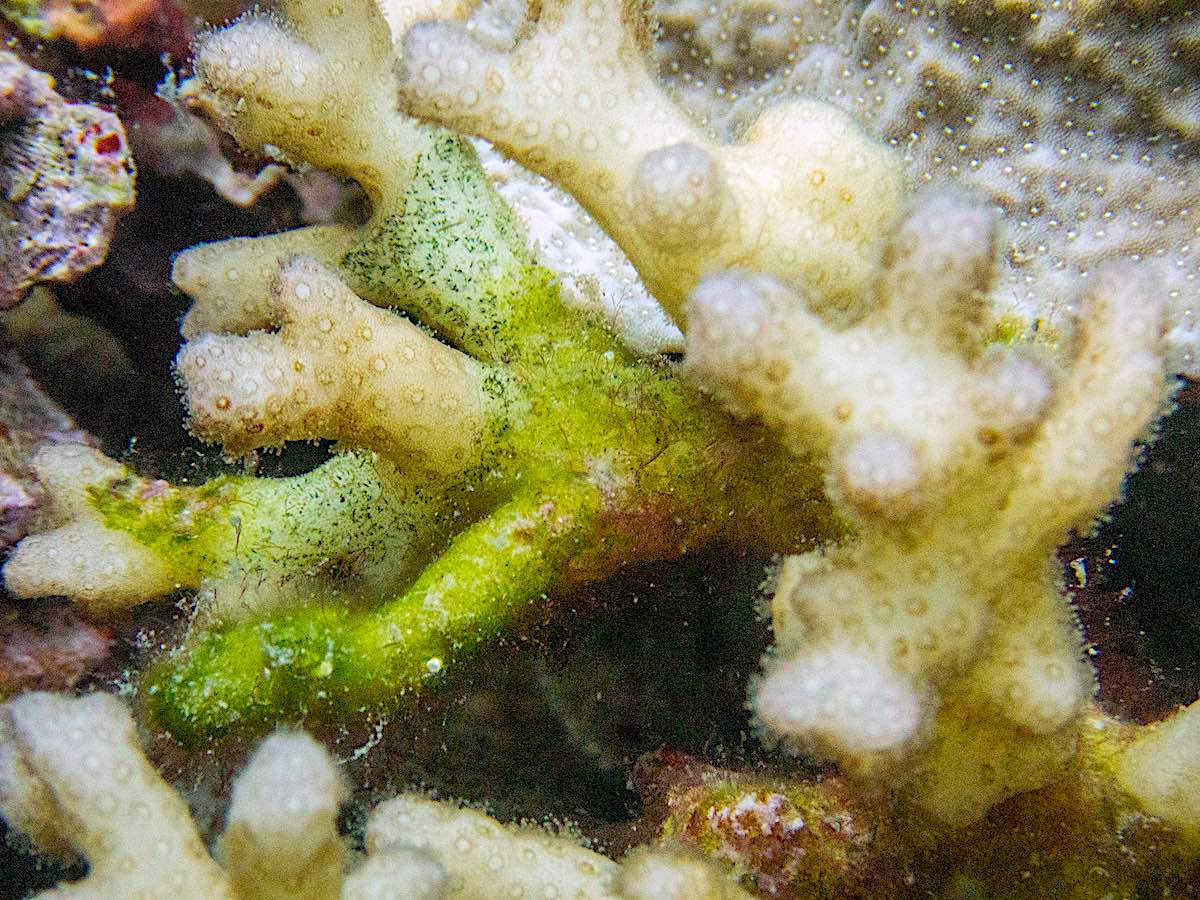
Surveying for Coral Diseases
Each module has a corresponding e-learning section. Ideally this would be completed before the instructor led presentation.
The instructor led knowledge development session is scheduled to precede ‘in water’ skill development and survey training dives and will cover and elaborate on the knowledge development sections you completed.
Additional dive and theory reviews and feedback are scheduled outside of the schedule, as and when required with each individual candidate.
You will be given a Coral Diseases & Compromised Health course quiz during the classroom presentation, and prior to the survey dives. You can complete the final exam prior to certification
Buoyancy Assessment for Scientific Diving
Prior to all Conservation Diver training courses candidates must satisfactorily complete a buoyancy assessment with a Conservation Diver Instructor.
This includes being able to swim slowly with legs elevated to avoid damaging the reef with head in the down position.
You must be able to record data on an underwater slate whilst keeping a close eye on the reef, maintaining buoyancy and not touching the reef with any part of your body or equipment.
Coral Disease Surveys on Koh Tao
You should also be able to maneuver easily in a manner that avoids any disturbance of the reef.
The Open Water requirement for the Coral Diseases & Compromised Health course is to successfully perform at least one Coral Disease and Comprised Health Monitoring Survey.
During our Coral Diseases & Compromised Health course we schedule two dives to ensure you can meet the performance requirements.
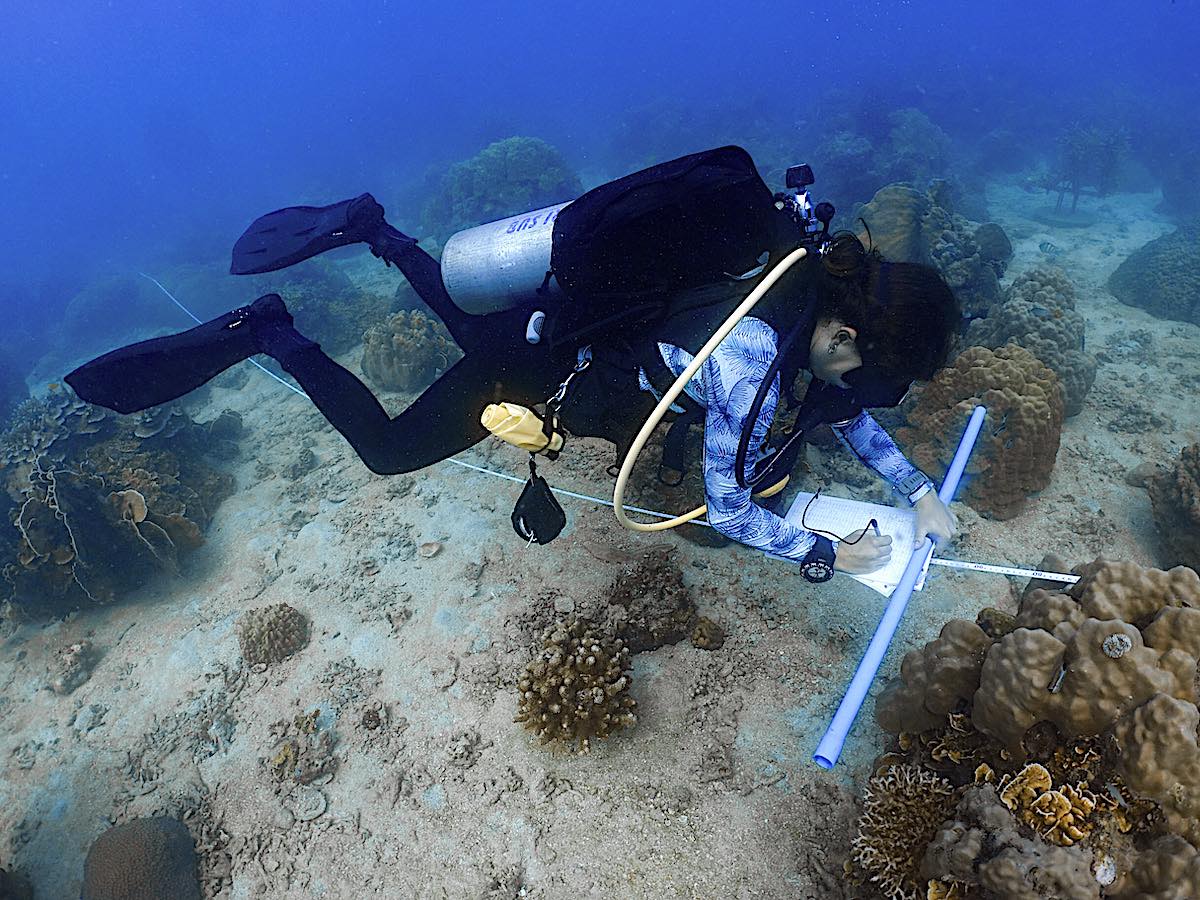
Participate in a Coral Disease Safari dive
Training Dive #1
During this dive we will look for signs of a range of ‘stressors’ including disease, competition, predation, sedimentation, pollution and physical disturbances.
During the Coral Disease Safari pre-dive briefing you will note down descriptions for a series of stressors that affect corals.
During the Coral Disease Safari dive your instructor will point out signs of stress on the corals and you will then point out the most accurate description noted down on the slate that describes the stressor.
Perform a Coral Disease & Comprised Health Monitoring Survey
Training Dive #2
During this dive students will conduct a transect line survey using a 1 metre PVC pipe centered at the transect line.
The Coral Disease and Comprised Health Monitoring Survey collects data from the first 10 metres of each transect area e.g 0.5m-10.5m, 25.5m-35.5m, 50.5m-60.5m, 75.5m-85.5m.
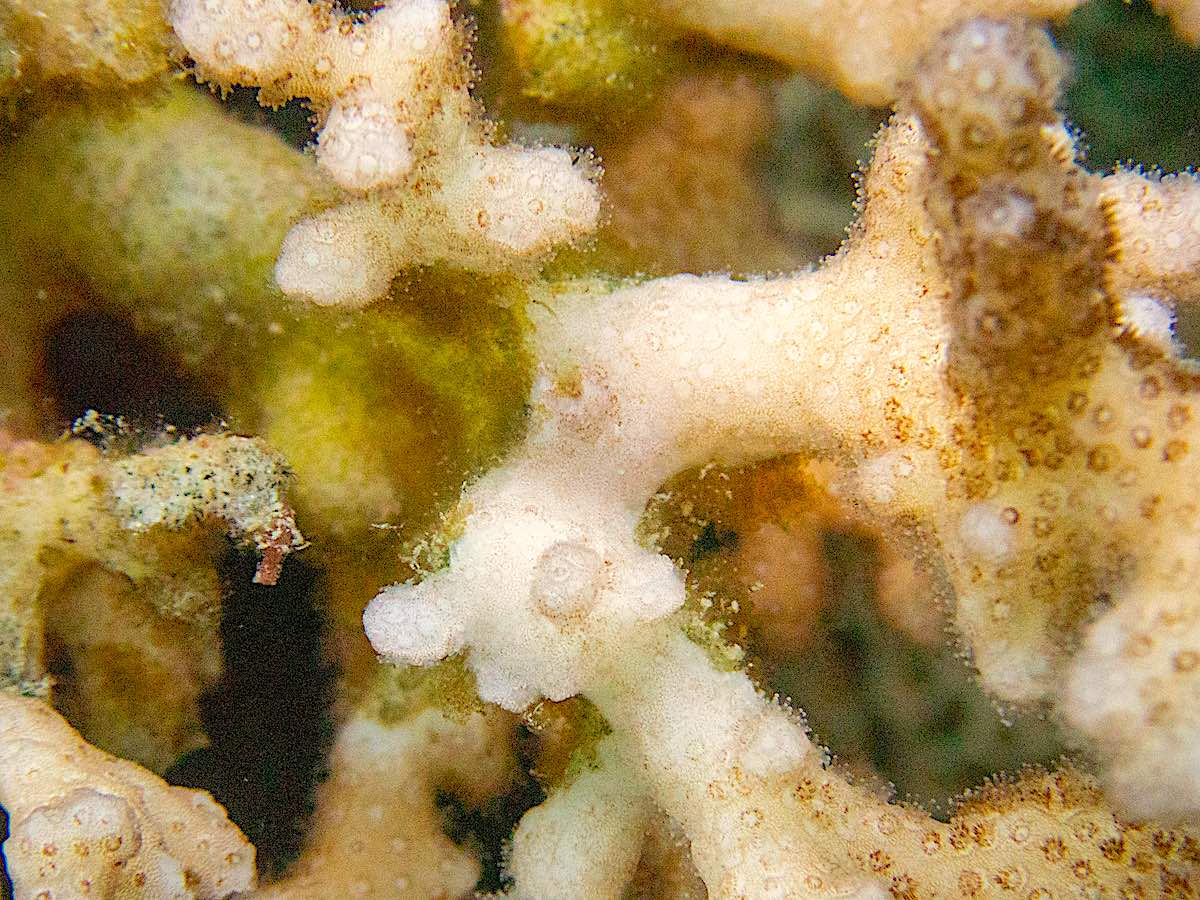
Recording Data for Coral Diseases
You are required to record all corals that show signs of stress that covers 50% or more of the actual colony within the range of the 1 metre PVC pipe. You then record the coral genus and state of health.
Most compromised health states are not disease but one of the following; Predation, overgrowth, Thermal Bleaching, Stress & Disturbance, Coral Bleaching or Competition.
You can use the Coral Health Decision tree to help you identify the stressor.
Contact us for more information about course schedules.
BOOK NOW 6,000 baht
Sign up for our Coral Diseases & Compromised Health Course
Frequently Asked Questions
What is the cost of the Coral Diseases & Compromised Health course?
The cost of the Coral Diseases & Compromised Health course is 6,000 baht per person.
Included within this cost is all rental equipment, Conservation Diver certification, diver insurance, and two coral disease survey training dives.
This Advanced scientific based specialty course offers great value for students who wish to further their knowledge on coral reef health, improve their ability to identify various common coral diseases of the region and become proficient conducting coral health reef surveys.
What is the minimum age for the Coral Diseases & Compromised Health course?
A diver must be at least 12 years of age to enroll on the Coral Diseases & Compromised Health course. There are also some other prerequisites to enroll on the course including being an Advanced diver and/or a Buoyancy assessment.
Students must also have completed the Ecological Monitoring Program (EMP) and the Coral Taxonomy & Identification course prior to starting the Coral Diseases & Compromised Health course.
What is Coral Diseases & Compromised Health course about?
During the Coral Diseases & Compromised Health course students will learn about the population dynamics of the coral reef.
You will learn what roles predation, competition & parasitism play, how to identify additional threats to reef health and understand why they happen and what this means for the future health of the reef.
The Coral Diseases & Compromised Health course also teach students to recognize symptoms that affect the corals of the Indo-Pacific and identify various common coral disease of the region.
The Coral Diseases & Compromised Health course provides important knowledge for anybody interested in studying coral reefs at an Advanced level and by the end of this course you will be able to conduct the Coral Disease Survey, collect data and contribute to local and global databases.
How long does the Coral Diseases & Compromised Health course last for?
We schedule the Coral Diseases & Compromised Health course over 1 full day, including 2 dives on the coral reefs of Koh Tao.
You will spend the morning in the classroom, participating in the Conservation Instructor led presentation Coral Health Assessment & Monitoring as well as a Coral Health Assessment quiz.
The afternoon will be spent on our dive boat. You will complete 2 training dives aimed at helping you to become proficient in conducting the Coral Disease Survey where you will collect vital data on the health of our local reefs.
The Coral Disease & Compromised Coral Health Monitoring certification is an advanced qualification awarded to students who have successfully completed all performance requirements of the Ecological Monitoring Program, the Coral Taxonomy and Identification course AND Coral Diseases & Compromised Health course.
Upon successful completion of all performance requirements students will earn the Conservation Diver Coral Diseases & Compromised Health certification.
Can you take a Coral Diseases & Compromised Health course in Thailand?
You can complete a Coral Diseases & Compromised Health course in Koh Tao, Thailand at Black Turtle Dive.
Black Turtle Dive is an official Conservation Diver Training center that offers a full curriculum of Scientific based marine conservation courses including the Conservation Diver Coral Diseases & Compromised Health course.
